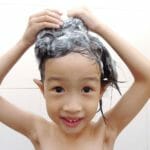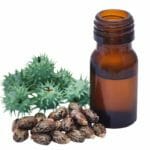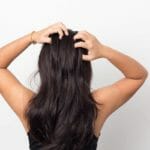Hero or Hype!: Does batana oil grow hair?
At BeautyCaters, our expert team independently curates every recommended product. Purchases through our links may earn us a commission. Explore our transparent selection process.
Batana oil has been making waves in the natural hair care world. You’ve probably heard the buzz about its supposed hair growth magic. But does batana oil grow hair? As an hair care expert, I put forth the detailed study to help you find out if this oil is worth the hype for your hair goals.

What is batana oil?
Batana oil is a precious extract from the American palm nuts. This golden elixir brims with essential nutrients that promise to nourish and revitalize the hair. Packed with omega-6 and omega-9 fatty acids, Batana oil acts as a natural humectant, helping to retain moisture and combat dryness.
Furthermore, its rich vitamin E content lends potent antioxidant properties, shielding the hair from environmental damage and oxidative stress. Unlike many other natural oils, Batana oil boasts a unique characteristic: inherent UV protection. This added layer of defense safeguards the hair from the sun’s harmful rays, preventing color fading and dryness.
While anecdotal evidence suggests batana oil’s efficacy in promoting hair growth, concrete scientific studies are still emerging. Nevertheless, its ability to nourish and protect the hair makes it a promising candidate for inclusion in a holistic hair care regimen.
Is batana oil good for hair?
Batana oil has garnered attention for its potential hair growth benefits, but scientific evidence is still limited. While rich in nutrients like vitamin E and essential fatty acids, which contribute to overall scalp and hair health, there’s currently insufficient data to definitively claim it directly stimulates hair growth.
However, batana oil undoubtedly nourishes and conditions the hair, reducing breakage and improving manageability. By creating a healthier hair environment, it may indirectly contribute to the appearance of thicker, fuller hair.
Ultimately, the effectiveness of batana oil can vary from person to person. If you’re considering incorporating it into your hair care routine, it’s essential to manage expectations and combine it with other healthy hair practices.
Also Read: Is vegetable oil good for your hair?
Benefits of batana oil for hair

Batana oil, a treasure trove of essential fatty acids and antioxidants, offers a comprehensive approach to hair care. Its nourishing properties extend beyond mere aesthetics, contributing to the overall health and vitality of your hair. Below are the 5 prime benefit you would draw from batana oil:
- Deep conditioning and hydration: Batana oil penetrates the hair shaft, replenishing lost moisture and restoring suppleness. This intensive hydration helps to combat dryness, frizz, and breakage, leaving your hair feeling silky smooth.
- Enhanced hair strength and elasticity: By fortifying the hair’s structural proteins, batana oil imparts resilience and flexibility. This reduction in breakage leads to longer, healthier-looking hair.
- Improved hair manageability: The oil’s ability to smooth the hair cuticle creates a protective barrier, reducing friction and tangles. As a result, styling becomes effortless, and your hair appears more polished.
- Scalp health support: Batana oil’s soothing properties contribute to a balanced scalp environment. By reducing inflammation and dryness, it creates optimal conditions for hair growth.
- Potential antioxidant protection: Rich in vitamin E, batana oil acts as a shield against environmental aggressors. These antioxidants help to neutralize harmful free radicals, preventing oxidative damage that can compromise hair health.
While research on batana oil’s direct impact on hair growth is ongoing, its ability to create a healthy hair environment is undeniable. Incorporating this oil into your hair care routine can be a transformative step towards achieving your hair goals.
Potential side effects of batana oil
While generally safe for most people, batana oil may cause adverse reactions in some individuals.
- Scalp irritation: In rare cases, batana oil may cause irritation or inflammation of the scalp.
- Allergic dermatitis: Individuals with nut allergies should avoid using batana oil due to the risk of allergic reactions.
If you experience any discomfort or adverse reactions, discontinue use and consult a dermatologist.
Does batana oil grow hair?
While Batana oil has gained popularity for its potential hair growth benefits, scientific research is currently limited. However, some factors may contribute to its perceived effectiveness:
- Tocotrienols: These antioxidants, found in batana oil, have shown potential in reducing oxidative stress on the scalp in a small study.
- Vitamin E: Present in batana oil, vitamin E helps maintain scalp health by protecting against oxidative damage and supporting skin barrier function.
Note that while these factors may contribute to a healthy scalp environment, which is essential for hair growth, direct evidence linking Batana oil to hair growth is still lacking.
Further research is needed to establish a definitive link between batana oil and hair growth. Until then, it’s advisable to approach its use with realistic expectations.
How to use batana oil for hair?

Batana oil is a versatile hair care ingredient that can be incorporated into your routine in several ways.
- Patch test: Before applying batana oil to your scalp or hair, conduct a patch test to check for any allergic reactions.
- Scalp massage: Gently massage a small amount of batana oil into your scalp to stimulate blood circulation and nourish hair follicles.
- Pre-shampoo treatment: Apply batana oil to your hair and scalp before shampooing to lock in moisture and protect against damage.
- Hair mask: Combine batana oil with other hair-friendly ingredients like honey or yogurt for a deep-conditioning treatment.
Tips:
- Consider the thickness of your hair when determining the amount of oil to use.
- For finer hair, use a smaller amount to avoid weighing down your strands.
- Leave the oil on your hair for at least 30 minutes, or overnight for deeper penetration.
- Rinse thoroughly with a gentle shampoo and conditioner after use.
Also Read: Can you use beard oil on hair?
Alternatives to batana oil
If you’re struggling to find Batana oil, consider these popular alternatives:
- Castor oil: Renowned for its thickening properties and potential to stimulate hair growth.
- Peppermint oil: Known for its cooling sensation and ability to improve scalp circulation.
- Rosemary oil: Often used to promote hair growth and reduce dandruff.
- Pumpkin seed oil: Rich in nutrients that support hair health and combat hair loss.
These oils are widely available and have a stronger research base supporting their hair care benefits.
Frequently Asked Questions about batana oil for hair
How long does it take to see results from using batana oil?
The timeline for noticeable results with Batana oil varies depending on your hair goals. For scalp issues, it might take several weeks to months. However, for immediate benefits like increased shine and moisture, you should see improvements after the first application.
Can I leave batana oil in my hair overnight?
Yes, leaving batana oil in your hair overnight can maximize its benefits, especially for deep conditioning and scalp nourishment. To protect your bedding, consider using a shower cap or wrapping your hair in a towel.
Does batana oil block DHT?
While batana oil contains nutrients like oleic and linoleic acids that may potentially inhibit DHT production, there’s currently no scientific evidence to definitively support this claim. More research is needed to confirm these potential benefits.
Final Word: Does batana oil grow hair?
While Batana oil offers several benefits for hair health, including deep conditioning and protection from environmental damage, its direct impact on hair growth remains inconclusive. While anecdotal evidence suggests positive results, scientific research is still limited.
If you’re considering incorporating batana oil into your hair care routine, it’s essential to approach it with realistic expectations. Combining it with a balanced diet, regular exercise, and other hair-healthy practices can contribute to overall hair wellness.










